TELLING OUR STORY
THE HISTORY OF EAGLE’S NEST FOUNDATION
1927
Mrs. Oppenheimer (Bailey) purchases Eagle’s Nest Camp and moves it from Eagle’s Nest Mountain, Haywood County, NC to our current site in the Little River Valley. The program was only for girls and closed due to WWII.
1945
Dr. Alex and Hannah Waite purchase Eagle’s Nest and open camp for boys and girls the summer of 1945 with the war still ongoing in the Pacific.
1946
Polio outbreak in Florida causes quarantine for the entire camp for two weeks.
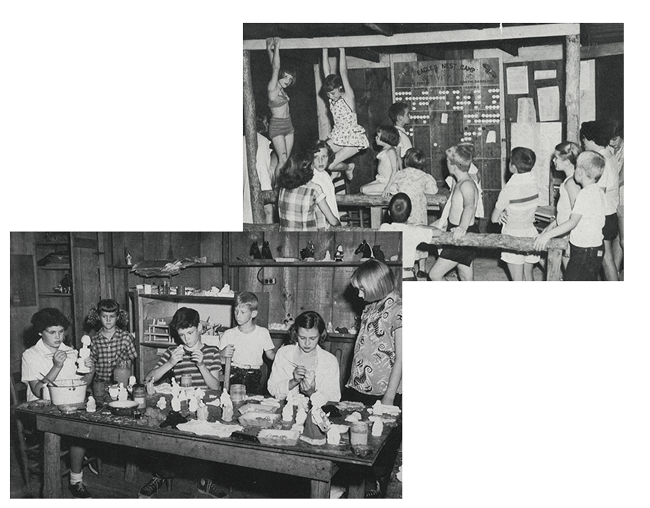
1950
Chartered as a 501(c)(3) educational, charitable organization with John D’Albora as President.
1968
Carolina’s Camp for Children with Diabetes opens with help from Duke University on the Eagle’s Nest campus. This partnership with the American Diabetes Associations of North and South Carolina and Georgia continued until 1984.
1973
Hante has its first Adventure on the Appalachian Trail.
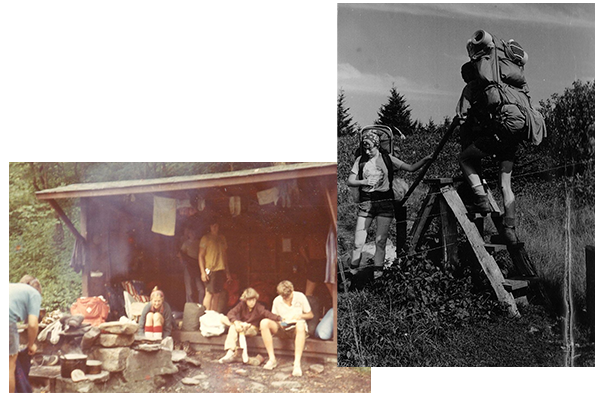
1977
Helen Valentine Waite becomes director of Eagle’s Nest Camp and Dr. Alex Waite retires.
1980’s
“Off Season” programs for adults including yoga retreats, bike treks, canoe adventures.
1992
Birch Tree Programs providing transformational experiences for school groups officially opens and operates until 1999.
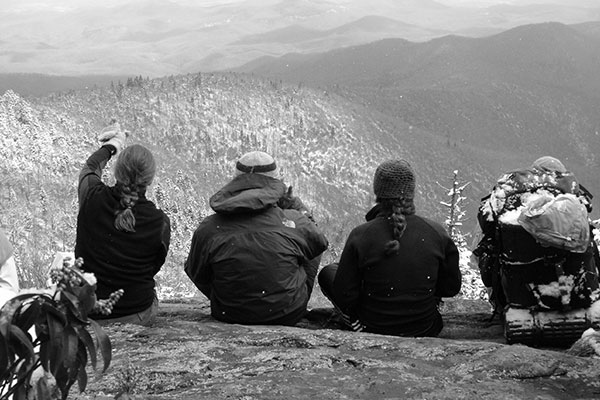
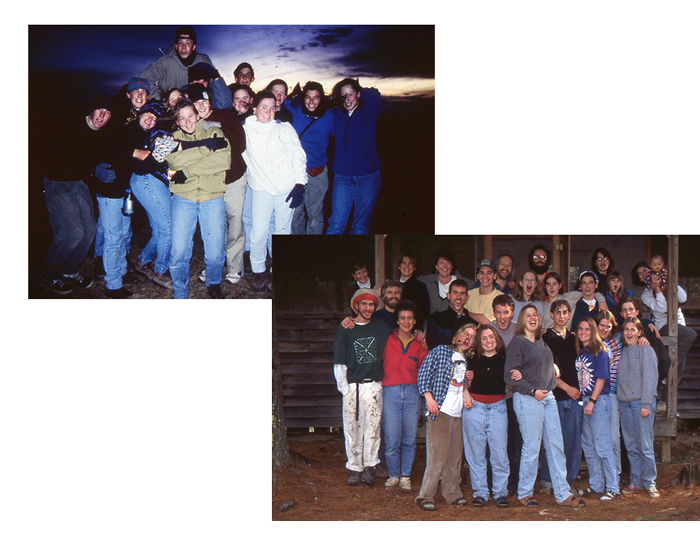
1993
Eagle’s Nest Camp becomes Eagle’s Nest Foundation overseeing Camp, Hante, The Outdoor Academy, and Birch Tree.
1994
The Outdoor Academy officially opens thanks to the vision of Helen Waite. Ted Wesemann is the founding Head of School.
1995
The first OA students arrive in Pisgah Forest for Semester 1.
2000
Noni Waite-Kucera becomes Executive Director of Eagle’s Nest Foundation
2001
Eagle’s Nest purchases 125 acres from P.H. Glatfelter Company including the horse pasture and most of the watershed.
2002
The Traditional Arts Center (Wayah and Cheoah) opens thanks to the generous donors of the Roots and Wings Campaign.
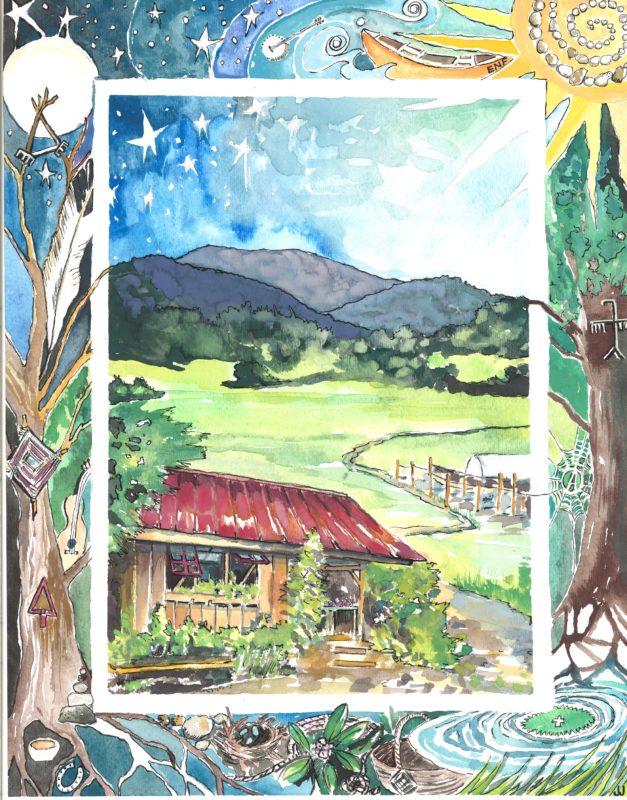
2014
Eagle’s Nest Board of Trustees set Centennial Action plan with four overarching priorities: Empower a community of educators; Cultivate and celebrate our sense of place; Share our Story; Build Financial Resiliency
2016
Protected in perpetuity: Eagle’s Nest places 76% of its land – 143 acres- under a conservation easement in partnership with Conserving Carolina and the North Carolina Clean Water Trust Fund. Eagle’s Nest Camp begins working to restructure some of the camp “tribal” system.
2019
Eagle’s Nest partners with Niambi Jaha-Echols to conduct a Trans-cultural agility assessment and draft a Transcultural Commitment Statement for the Foundation.
2020
The COVID-19 pandemic forces summer camp to close for the season. “Mo’s Hillside” a new housing and offices building is completed and opens for use. All programs update gender inclusion provisions including housing participants and staff with gender with which they identify.
2021
Eagle’s Nest publishes a Land Acknowledgement Statement to acknowledge that the land upon which Eagle’s Nest sits is the ancestral land of the Cherokee people past and present. Eagle’s Nest Camp updates the community system formerly known as tribes to become Kindreds and makes other changes to remove names, symbols, and activities irreverent of Native American peoples and culture.
Eagle’s Nest Foundation values the opportunity to connect with a diverse network of colleagues and perspectives. The above links are shared for information purposes only and with independent ownership. Eagle’s Nest Foundation is not responsible for the currency, accuracy, or legality of the content on external sites linked on our website.